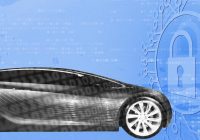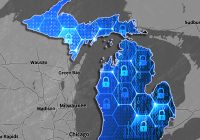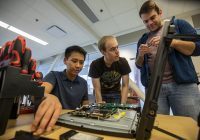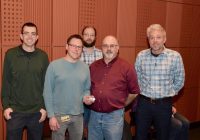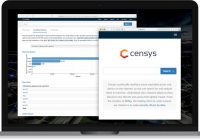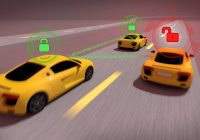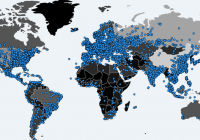Tag Archives: hacking
Hacking reality
Where does “computer” end, and “real world” begin? This line, separated so firmly in our minds by apps and user interfaces, is finer than it appears as our devices are under attack in new, increasingly sophisticated ways: microphones that “hear” light; microprocessors that “tell” us secrets; self-driving cars that “see” fake objects; sensors that “feel” the wrong temperature.… Read More »
Probing tech’s soft underbelly
On any given day in Kevin Fu’s laboratory at the College of Engineering research investigators might use an antenna to fool the lab’s sensor into giving a false temperature readings or a laser light beam to inject false voice commands in a voice-controlled assistant from a distance of 300 feet. Unlike many cybersecurity troubleshooters, Fu is not looking… Read More »
Voters fail mock election, exposing voting machine flaws
Many voters across the country will cast ballots this year on machines called ballot-marking devices (BMDs), which combine the convenience of touchscreen technology with an auditable paper trail. However, the system relies on voters to identify errors. That could be a problem according to a U-M report published in early January. According to the study, only 6.6% of… Read More »
U-M researchers hack devices with laser “Light Commands”
A team of researchers including Kevin Fu and Daniel Genkin, U-M professors of electrical engineering and computer science, have found a way to take over Google Home, Amazon’s Alexa, or Apple’s Siri devices from hundreds of feet away by shining laser pointers, and even flashlights, at the devices’ microphones. “We’ve shown that hijacking voice assistants only requires line-of-sight… Read More »
Unhackable: New chip stops attacks before they start
A new computer processor architecture developed at U-M could usher in a future where computers proactively defend against threats, rendering the current electronic security model of bugs and patches obsolete. Called MORPHEUS, the chip blocks potential attacks by encrypting and randomly reshuffling key bits of its own code and data 20 times per second—infinitely faster than a human… Read More »
Winning ideas at Hacks with Friends 2019
Halderman co-chairs new commission to protect Michigan votes
Michigan Secretary of State Jocelyn Benson recently announced a new Election Security Commission to be co-chaired by U-M professor of computer science and engineering J. Alex Halderman. His work in voting security and in particular electronic voting machines has positioned him as a preeminent expert in the field. Halderman has made multiple contributions to election security advocacy at… Read More »
Report: Top universities in U.S. targeted by Chinese hackers
U-M CIO Ravi Pendse was quoted in a recent article about how new cybersecurity intelligence suggests that Chinese hackers are ramping up their efforts to steal military research secrets from U.S. universities. According to a report in “The Wall Street Journal,” Chinese hackers targeted institutions and researchers with expertise in undersea technology as part of a coordinated cybercampaign… Read More »
Your hard drive may be listening
If you are already nervous about computer attacks, here’s some unwelcome news: there are many ways in which our technology is vulnerable based on physics, rather than on software. At the American Association for the Advancement of Science conference in mid-February, U-M computer scientist Kevin Fu and his colleagues reported a scary find: your computer hard drive could—without… Read More »
Election security: Halderman recommends actions to ensure integrity of U.S. systems
J. Alex Halderman, a U-M professor of computer science and engineering, testified on February 27 in front of the US House Appropriations Subcommittee on Financial Service and General Government, urging lawmakers to approve additional funding for election cybersecurity prior to the upcoming 2020 elections. Halderman described the need as critical, citing two years of investigation by Congress and… Read More »
A secure future for US elections starts in the classroom
Voting machines have largely replaced paper ballots – but many of these machines are susceptible to errors, manipulation, or hacking, raising concerns about the integrity of election results. Professor J. Alex Halderman has been at the forefront of exposing vulnerabilities in electronic voting systems around the world. By pointing to root causes behind these shortcomings, he hopes to… Read More »
Equifax data breach: Consumers knew but took little action
When the Equifax data breach impacting nearly 147 million people occurred just over a year ago most consumers took little to no action to protect themselves despite the risk of identity theft, U-M researchers found. In comprehensive interviews with 24 consumers, a team of researchers at the School of Information led by Yixin Zou and Florian Schaub found… Read More »
How to hack an election in six easy steps
J. Alex Halderman, a professor of computer science and engineering at U-M, helped create a video on the vulnerability of U.S. electronic voting systems called, “I Hacked an Election. So Can the Russians.” The video is part of a series by the New York Times on voting in America, which will run until Election Day in November. Calling the… Read More »
Winning ideas at Hacks with Friends 2018
U-M startup offers new approach to cybersecurity
Rolling out what it’s calling a “street view for cyberspace,” Censys—a tech startup based on technology developed at the university—has launched a commercially available version of its internet-wide scanning tool. Based on technology developed in the lab of computer science and engineering professor J. Alex Halderman, Censys continuously scans the internet, analyzing every publicly visible server and device.… Read More »
U-M releases tool to assess cybersecurity in self-driving cars
A new white paper by U-M researchers working with Mcity illustrates the breadth of the cybersecurity challenges that must be overcome before autonomous and connected vehicles can be widely adopted. While every new generation of auto tech brings new security risks, the vulnerabilities that come along with advanced mobility are both unprecedented and under-studied, the paper states. The… Read More »
U-M team working on unhackable computer
By turning computer circuits into unsolvable puzzles, a University of Michigan team aims to create an unhackable computer with a new $3.6 million grant from the Defense Advanced Research Projects Agency. Todd Austin, U-M professor of computer science and engineering, leads the project, called MORPHEUS. Its cybersecurity approach is dramatically different from today’s, which relies on software—specifically software patches… Read More »
U-M not affected by worldwide ransomware attacks
U-M has not been affected by the widespread global ransomware attacks on computer networks over the weekend. Even with the U-M campuses — including Michigan Medicine — unaffected at this time, the attack remains a serious, ongoing threat. The attack that started May 12 has spread to more than 150 countries and 200,000 computers. For those affected, the attack… Read More »
Smartphone security hole
A sweeping study by U-M researchers of an internet communication mechanism common in mobile devices has revealed that so-called ‘open ports’ are much more vulnerable to security breaches than previously thought. The vulnerability is most pronounced in Android apps that let users share data across devices and connect to their phones from their computers. One app, called Wifi… Read More »

